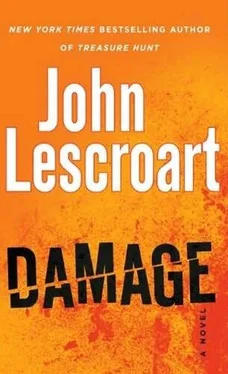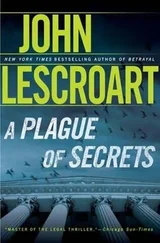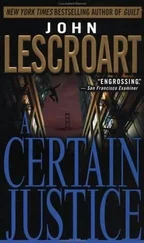“True enough.”
“There you go. So it’s textbook. And it’s a felony. Plenty to get him back inside.”
Glitsky shifted himself off the desk. “Then what am I sitting around here for?”
“You’re sitting around waiting for me to clear this with Wes. He’s going to want you to get a warrant. And in fact, he’ll want somebody else to take this. He’ll think you’re too close. I could call Matt and I’m sure he and a couple of his buddies would jump all over the opportunity. Now you’re supposed to ask me who Matt is.”
Glitsky stood by the door. “I think I vaguely remember, but I’m afraid that this has got to be a police matter, Amanda. This is a serious guy who threatened my family. He’s going into custody as soon as I can get him there.”

But Glitsky couldn’t do anything about Ro until he knew where his suspect was. And more specifically that he was not still skulking around his own home. Treya had watched Ro apparently walk away, but that didn’t mean he wasn’t still parked nearby, perhaps waiting for Glitsky to show himself on his street, an easy target for ambush.
So he called the precinct house downstairs at the Hall and requested a team of patrolmen be sent to his home ASAP, where they would remain with Treya and the kids until Glitsky’s arrival. On the way there, the team was to keep a lookout for a purple BMW Z4 parked in the neighborhood and report immediately to Glitsky if they saw one.
Glitsky had a patrol woman place a call to the Curtlee home. She identified herself as a clerk concerned with his bail bond and said that she needed to speak to Ro about his status at his earliest convenience. When Ro picked up with a “what the fuck is this about now?” the patrol woman told him she just needed to confirm his resident address, and having accomplished the call’s primary objective, which was to determine if Ro was back home, she hung up.
Glitsky, still in a high and glowing rage, left her office at the word and, out in the hallway, broke into a jog.

There are three ways that law enforcement officers can make a valid arrest in California, and Glitsky had had a great deal of experience with all of them.
In the first instance, the grand jury issues an indictment. The court issues a warrant and a couple of officers are assigned to arrest the suspect and deliver him or her to the jail. In the second case, investigators conclude that they have enough evidence to satisfy the probable-cause requirement, and they bring this evidence to a magistrate (one of the rotating superior court judges), who then signs off on an arrest warrant, after which, again, a couple of officers go out to effect the arrest. The third type, the so-called no-warrant arrest, is both the most common and the most challenged because it almost always includes an element of subjectivity-an officer or team of officers makes a unilateral decision that the suspect must be taken into custody immediately for any number of reasons, usually because he was caught in the act, but perhaps to stop him from committing another crime or to keep him from fleeing the jurisdiction.
Glitsky didn’t know offhand who was the presiding magistrate on this Saturday afternoon, but he did know two other things for sure: that the magistrate might be Sam Baretto, who would be very unlikely to sign off on a warrant; and that Ro Curtlee needed to be in jail right now. These were two possibly irreconcilable scenarios, and the second one, in Glitsky’s mind, was nonnego tiable.
So by the time he was on the elevator heading down to the lobby, Abe had made up his mind. Because of the overt threat to his own family, he believed he had plenty to justify a no-warrant arrest. Wes Farrell had already promised him that if he had anything substantive to bring Ro in on, the DA’s office would back him up. Besides, in police work-as in so many other endeavors-it was always better to ask for forgiveness later than for permission before.
His duty was clear and Glitsky was going to do it.

On reflection, Glitsky knew Jenkins was right that it would be hard for him to make the arrest himself. He was just too close to the case. He also knew he couldn’t go into any suspect’s house without an arrest warrant, even for a felony. But what he could do was put a bunch of officers in surveillance around the house who would nail Ro Curtlee the first time he set foot outside.
It only took him a couple of minutes to explain the situation and to pick up two pairs of uniformed patrolmen and another squad car from Southern Station, the precinct that worked out of the ground floor of the Hall of Justice. They would take the initial shifts around the Curtlee home until Glitsky could call in some of the detectives from night investigations to take over the surveillance.
Now the five policemen had pulled up and parked at the curb down the street from the Curtlee home, Glitsky in his city-issue and his troops behind him in their black-and-white patrol cars with the wire mesh between the front and back seats.
They got out of their cars and gathered near Glitsky’s back bumper. The light drizzle continued and in the late afternoon limited visibility to about fifty yards. The weather didn’t seem to bother or even much register with any of the men.
Glitsky liked the trim of these youngsters-solid guys, all probably under twenty-five, pumped up and eager to be working with the head of homicide. They all looked like they worked out with some regularity. The biggest white kid-his name tag read DALY-stood with his arms folded across his chest. His partner, Monroe, lean and dark black, kept his hands in his jacket pockets and shifted his weight from foot to foot, loose and easy. The two others might have been their cousins. All the men wore their belts-guns, batons, and handcuffs. Glitsky, in plainclothes, had no patrolman’s belt, just his service weapon in a shoulder holster underneath a dark brown Gore-Tex jacket.
“What if he doesn’t come out?” Daly asked.
Glitsky’s mouth turned up a fraction of an inch, anticipating a smile that never quite materialized. “We wait till he does. The man’s going to jail.”
The patrolmen exchanged a glance, galvanized by the thought of real action.
“Oh,” Glitsky added, “and there may be a butler, large gentleman, who has a carry permit and might want to make this an issue. He interferes in any way, we restrain him and bring him downtown as well, clear? No chances with either of these guys.”
“Yes, sir,” the four men said in unison.
“All right. Let’s go.”
Glitsky sent one of the squad cars beyond the house to the end of the block so that if Ro came out, whether he turned left or right, there would be someone to cut him off. In their enthusiasm, the officers in this car turned on their overhead flashing lights to drive the fifty yards down the street. Glitsky flinched. At least, he thought, they didn’t turn on their sirens.
But it turned out that the red strobes were enough.
Glitsky turned and had only taken two steps back toward his car when Ro Curtlee emerged from the house, his drink in his hand, striding purposefully down the walk, looking up the street toward the patrol car with its lights flashing. Today he was wearing a gray hoodie with the top down, new jeans, new tennis shoes. “ I don’t believe this shit ,” he yelled into the night. Still focused on the patrol car up the street, he never even noticed Glitsky until he and the other two patrolmen were almost upon him.
“You’d better believe it,” Glitsky said. “Ro Curtlee, I’m placing you under arrest for threatening a police officer’s family. You have the right to remain…”
Читать дальше















